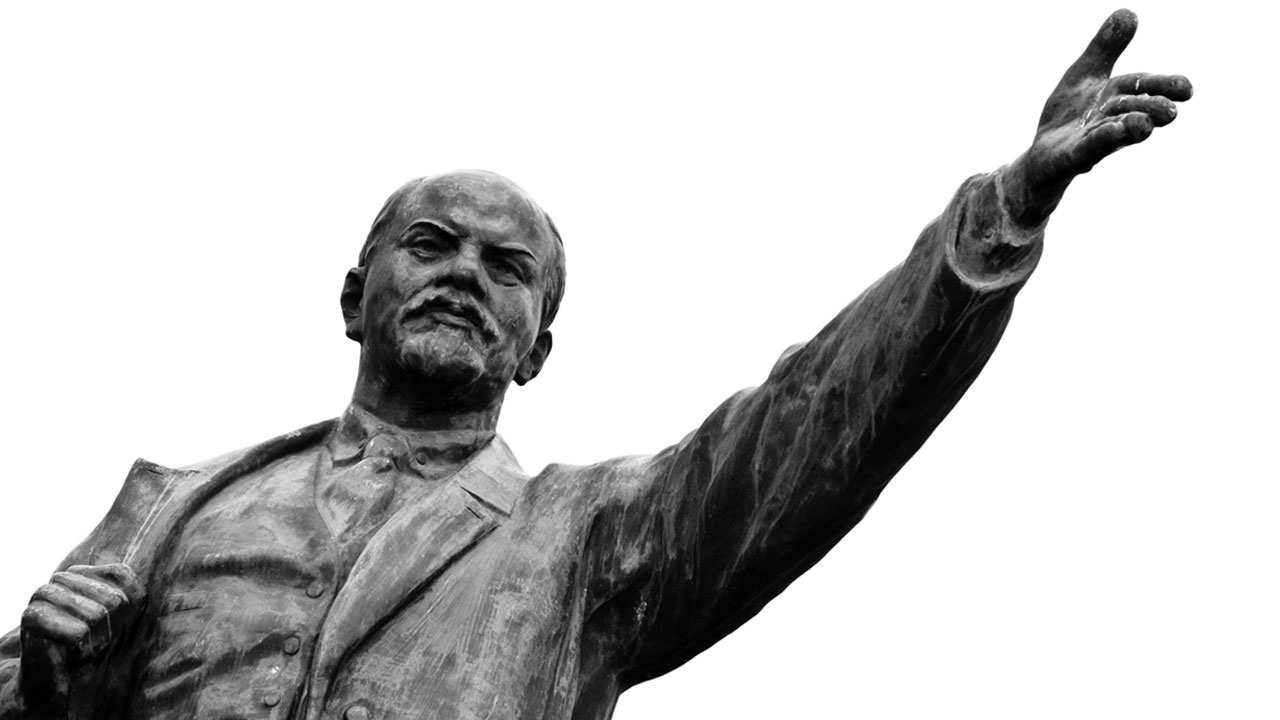Winston Churchill, one of the twentieth century’s most important and influential leaders, once said in a speech before the United Kingdom’s House of Commons, “The inherent vice of capitalism is the unequal sharing of blessings. The inherent virtue of socialism is the equal sharing of miseries.”
Since Churchill delivered these remarks, little has changed in the way supporters of individual freedom address socialism; generally speaking, the emphasis is always placed on why socialism isn’t an effective economic system.
In my article published previously titled “Why Socialism Will Never Work,” I spent a little bit of time outlining some of the reasons I believe Marx’s view of socialism, the same philosophy espoused by many of the world’s modern socialist parties, is severely flawed. However, the primary purpose of this website/project isn’t to present an open-and-shut case against the effectiveness of socialism. Why? Because although it’s true that whenever socialism has been attempted (it’s never been fully implemented), it has always ended in tragedy, American progressives, socialists, and other leftists have been quite successful in convincing millions of people to believe socialism can work and that the mixed-market socialized societies of Europe are models that should be adopted everywhere, including in the United States.
Too often, the debate focuses on results rather than morals, and it’s easy for the Left to manipulate results, make false promises, or cherry-pick data to “prove” that socialist systems can and do work. And whenever a crafty leftist finds himself or herself backed into a corner in a policy debate, he or she simply reverts to the old, albeit effective, argument alleging, “If we had higher taxes, all of our policies would work.”
Further, it’s difficult to disprove hypotheticals, so the fact that socialism in its purest form has never been implemented creates significant challenges for opponents of communism and socialism, especially because socialists’ promises of a utopian society in which all people everywhere have everything they need is so alluring. Who doesn’t want to live in a country where there is no poverty, violence, or ruling classes? Who doesn’t want to live in a world where everyone has health coverage, access to college, and guaranteed wealth?
Many young people are especially susceptible to such promises. Millennials such as myself didn’t live through the fall of the Soviet Union, the reeducation camps of Mao’s communist China, or the Cambodian killing fields. When they think of socialistic policies, they think of Scandinavia, not Nazi Germany.
To win the ideological war against socialism, the debate needs to focus on the numerous moral problems with socialism, not whether socialist systems are effective at providing food, shelter, education, or health care. The reason I believe this is not because I think it’s impossible to argue free markets are more effective at making societies happier and healthier; history has proven over and over that liberty does lead to greater prosperity. This argument is more difficult to make, however, because it requires people to have a deep knowledge of history, current events, and political philosophy—an important caveat in an America in which leftists control virtually every level of the education system, most of the country’s primary media outlets, Hollywood, and most of the music industry.
Further, by fixating on complex economic, social, and cultural problems associated with socialism, supporters of liberty have abandoned the moral high ground, which is why they routinely find themselves arguing socialism is a nice utopian thought but isn’t realistic, rather than arguing socialism is a horrendous, tyrannical ideology, even if it can be proven to be effective at controlling and manipulating every aspect of a nation’s economy.
Throughout the remainder of this article and in future articles, I’ll explore the many moral problems with socialism—both Marxist socialism and the more moderate European-style socialism commonly found in many parts of the world today, including in the United States. I will mostly—although not completely—avoid discussing failed socialist-leaning states and evaluating whether socialist systems are effective at improving people’s living standards.
But before explaining why I believe Marx’s socialism is highly immoral, I strongly recommend you take a few minutes to read my short article discussing how to define “evil” and “morality” in the post-modern West. It’s available here.
Collective Property Ownership
As I mentioned in previous articles, one of the core elements of all Marxist socialist models is the collective ownership of property. In Marx’s socialism, most forms of private property are collectively owned. There might be some private personal possessions, but all the so-called “means of production” are owned by the entire community, whether that be a single nation or the entire globe.
Because most or all property is owned collectively in Marxism, all decisions must be made on the behalf of the collective. This is an important aspect of democratic socialism for many of its adherents because if different property-owning groups exist, you can’t have a classless society. You could theoretically divide property ownership equally among groups, but those groups would eventually manage their property differently, resulting in some groups having more or better property than others. In Marx’s socialism, this can’t be permitted, because, again, this would mean a class system would exist or soon develop.
Many democratic socialists argue in the most developed form of Marxism, a society would not include any money and few, if any, markets precisely because people would manage property differently and class systems would eventually emerge. Thus, all or most property must be owned collectively.
There are primarily two ways to go about managing property collectively. The first is to have a small group of people have complete control over the management of property for the whole of society. This model has been embraced by tyrannical governments all over the world and throughout human history. It effectively leads to there being at least two classes in society (and usually more develop): those who control property and those who must live in accordance with whatever those in charge want. North Korea essentially operates this way today.
Many modern Marxists would reject this model and say it violates several fundamental aspects of Marx’s socialist thinking. Instead, they advocate, as Marx did, for the democratic control of property.
In practice, democratic control of property means the people, through democratic elections, would decide how all property must be used. This could be accomplished either through direct democracy, where every person in society votes for how property should or shouldn’t be used, or through a representative democracy, also called a representative republic. Under the representative democracy model, people would elect others to manage property, but the public would continue to maintain control over those they elect.
Because the vast majority of existing socialist parties, groups, and activists in the modern era are calling for a democratic form of socialism, rather than some fascist model, I’ll refrain from commenting on other forms of governance. Nearly everyone, including most modern Western socialists, would agree tyrannical forms of government are evil, so there’s no point in spilling additional ink arguing against the merits of a system nearly all corners of the Western world rejects.
Hindus or Hamburgers?
In democratic socialism, all decisions would be, directly or indirectly, made collectively and with the whole populace in mind. Each person would own an equal share of all the wealth in that society, so collective decision-making is virtually a necessity.
Marx’s idea was that if all property is owned collectively and managed for the good of everyone, then the trillions of dollars of wealth (in modern terms) controlled by corporations, wealthy people, and other members of Marx’s “bourgeoisie”—those who control the world’s capital—could be used more effectively and to the benefit of working-class people. This means, by definition, all or nearly all economic decisions would be made by the majority of people in society. This is extremely problematic in a society in which people have different moral values, because those with the minority view must inevitably participate in activities they are morally opposed to, including many activities that would violate religious beliefs.
For instance, many Hindus believe killing and eating animals is extremely immoral.[1] In a socialist society, the agricultural industry, like all industries, would be collectively owned and managed. If the majority of people in society votes, either directly or indirectly, to kill cows to produce beef products for consumption, all Hindus in that society must participate. They would, directly or indirectly, support the killing of cows through their labor, and because the cows and virtually all elements of the cow-killing industry would be owned collectively, there would be no way for Hindus to separate themselves from these actions. The society would be forced to choose between violating the religious beliefs of some Hindus or banning hamburgers. There would be no middle ground, because all industries would be owned collectively.
A related problem would exist for those Muslims who might feel uncomfortable contributing to the consumption of pigs, which is a violation of their religion: “Forbidden to you are: dead meat, blood, the flesh of swine, and that on which hath been invoked the name of other than Allah.”[2],[3]
The same might be true for some Jews, who believe, in accordance with their scriptures, they are not permitted to eat pork: “And the pig, though it has a divided hoof, does not chew the cud; it is unclean for you. You must not eat their meat or touch their carcasses; they are unclean for you.”[4]
These concerns don’t only apply to those with religious beliefs, either. People for the Ethical Treatment of Animals (PETA), an organization that boasts more than 6.5 million members, states on its website, “Animals are not ours to eat, wear, experiment on, use for entertainment, or abuse in any other way.”[5]
In one section of PETA’s website, it goes so far as to say animals have “a right to live free from pain and suffering”:
Supporters of animal rights believe that animals have an inherent worth—a value completely separate from their usefulness to humans. We believe that every creature with a will to live has a right to live free from pain and suffering. Animal rights is not just a philosophy—it is a social movement that challenges society’s traditional view that all nonhuman animals exist solely for human use. As PETA founder Ingrid Newkirk has said, “When it comes to pain, love, joy, loneliness, and fear, a rat is a pig is a dog is a boy. Each one values his or her life and fights the knife.”
In a country or world with a socialized agricultural system, it’s highly unlikely animals wouldn’t be harmed, especially in Western countries. That means all of PETA’s 6.5 million members would be forced to contribute to industries they find reprehensible.
The only way to avoid these and many other similar moral problems would be to ban the killing of animals, which, of course, would mean hundreds of millions of people in the West would be barred from hunting and eating in ways they now enjoy. It would also create a tremendous strain on agriculture and other food providers, because they aren’t equipped to handle the massive increase in demand that would be necessary to keep the West from starving or suffering from malnourishment in a world in which animals cannot be killed.
Nuns or Feminists?
The food industry is only one concern, and certainly not the most controversial. While a detailed discussion of contraception is beyond the scope of this article, one thing is beyond any doubt: Some people throughout the world believe contraception is evil while others believe all women have a right to have access to contraception.
In the Roman Catholic Church, the official dogmatic teaching of the church is that it is a grave sin, and thus an evil act contrary to God’s will, to have sexual relations while using birth control methods that attempt to block conception. On the opposing side of the issue, many feminist groups believe women have a right to have access to various birth control methods, all or nearly of which would be considered in opposition to the Roman Catholic Church’s teachings.
In a fully socialized medical system, contraception is either permitted, produced, and provided or it’s forbidden. There is no middle ground because there is only one health care provider: the collective. That means either nuns or feminists would be forced to violate their beliefs and participate in a system they oppose.
CONTINUE READING ABOUT SOCIALISM BY READING THE SECOND PART OF THIS ARTICLE.
PHOTO: Communist propaganda photo. Image by Getty Images’ iStock user wagnerm25.
[1] Wendy Doniger, “Hinduism and its complicated history with cows (and people who eat them),” The Conversation, July 16, 2017, http://theconversation.com/hinduism-and-its-complicated-history-with-cows-and-people-who-eat-them-80586.
[2] See Quran 5:3.
[3] “Why do Muslims abstain from pork?,” WhyIslam.org, August 9, 2011, https://www.whyislam.org/faqs/restrictions-in-islam/why-do-muslims-abstain-from-pork.
[4] Book of Leviticus 11:7–8, New International Version of the Bible.
[5] “Why Animal Rights?,” People for the Ethical Treatment of Animals, accessed June 5, 2018, https://www.peta.org/about-peta/why-peta/why-animal-rights.
Justin Haskins is editor-in-chief of 1818 Magazine. Haskins is a widely published writer and political commentator, the director and founder of The Henry Dearborn Institute for Human Rights, and the editorial director and research fellow at The Heartland Institute, a national free-market think tank. Haskins was first contributor to Glenn Beck's "Arguing with Socialists," a New York Times best-selling book, and the author of "Socialism Is Evil," an Amazon bestseller. He writes columns for FoxNews.com, Newsweek, and The Hill, has appeared on television more than 100 times, including numerous appearances on "Tucker Carlson Tonight." His work has been featured by the New York Times, Washington Post, Wall Street Journal, National Review, New York Post, and the White House, among many other sources. Haskins was named one of the "Top 30 Republicans Under 30" by Newsmax, is a member of the Philadelphia Society, and holds two master's degrees from Regent University. Follow him on Twitter @JustinTHaskins.







